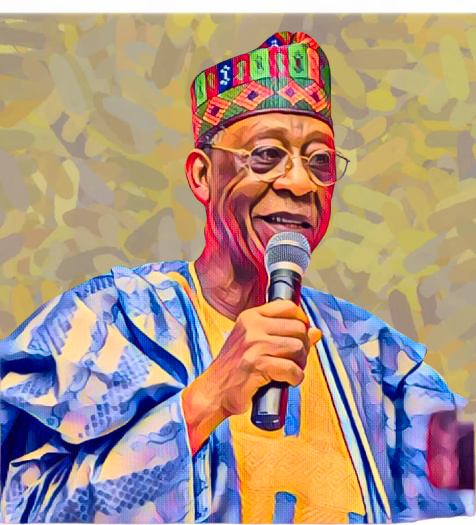Key Points
-
Abiola’s 1993 election victory was driven by anti-military sentiment.
-
Waziri says Nigerians voted out of frustration, not preference.
-
Dokpesi’s legacy spanned media, politics, and democracy building.
Adams Maina Waziri, a former Minister of Police Affairs, revealed that Nigerians voted for the late Chief Moshood Abiola in 1993 out of frustration.
They wanted to end military rule at all costs, not necessarily because Abiola was their top choice.
Waziri spoke at the Second Posthumous Legacy Colloquium in Abuja. The event honored the late media mogul and political strategist Raymond Dokpesi.
According to Waziri, the annulled June 12, 1993, election wasn’t about preference. Instead, it was a desperate cry for civilian governance.
He explained that Nigerians didn’t view Abiola or Bashir Tofa as their ideal leaders. However, they voted for them in hopes of driving the military out of power.
“With due respect, Abiola was not the first choice. Neither was Bashir Tofa,” Waziri said. “The people were just tired. They wanted an end to military leadership.”
Waziri named several preferred candidates who never made it to the final ballot. These included Adamu Ciroma, Shehu Musa Yar’Adua, and Bamanga Tukur.
Despite this, Nigerians still voted overwhelmingly in the election. They simply wanted change.
Abiola’s 1993 election victory symbolized shift from dictatorship
The military government, led by Gen. Ibrahim Babangida, annulled the June 12 results. He cited national security concerns as the reason.
However, this decision triggered national outrage. Protests erupted across the country. Political instability followed, and Babangida was eventually forced to resign.
Waziri explained that this election became a symbol of hope. It reflected the people’s will to end decades of military control. “The vote was a protest,” Waziri said. “It was a loud demand for democracy.”
Furthermore, Waziri urged political historians to document Dokpesi’s contributions. He said the late media icon helped build and stabilize the Peoples Democratic Party between 1999 and 2023.
Dokpesi remembered as media pioneer and political force
Alex Ter Adum, former Attorney General of Benue State and General Secretary of D-37, described Dokpesi as unforgettable. He said Dokpesi’s legacy cut across generations and republics.
Adum noted the significance of May 29 — the day Dokpesi passed away. It coincides with Nigeria’s Democracy Day.
“We now call this day Transition Day,” Adum said. “It’s small in ceremony, but big in meaning.”
Yusuf Usman, guest lecturer at the event, also delivered a strong message. He expressed deep concern over Nigeria’s current state.
Usman criticized the Tinubu administration for ignoring widespread hunger and rising insecurity.
“We have leaders who serve themselves and ignore the people,” he said. “No nation can survive under injustice and inequality.”
He warned that the military had become overstretched. Politicians created Nigeria’s problems, he argued, and they left the military to clean up the mess.



